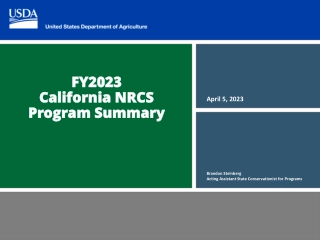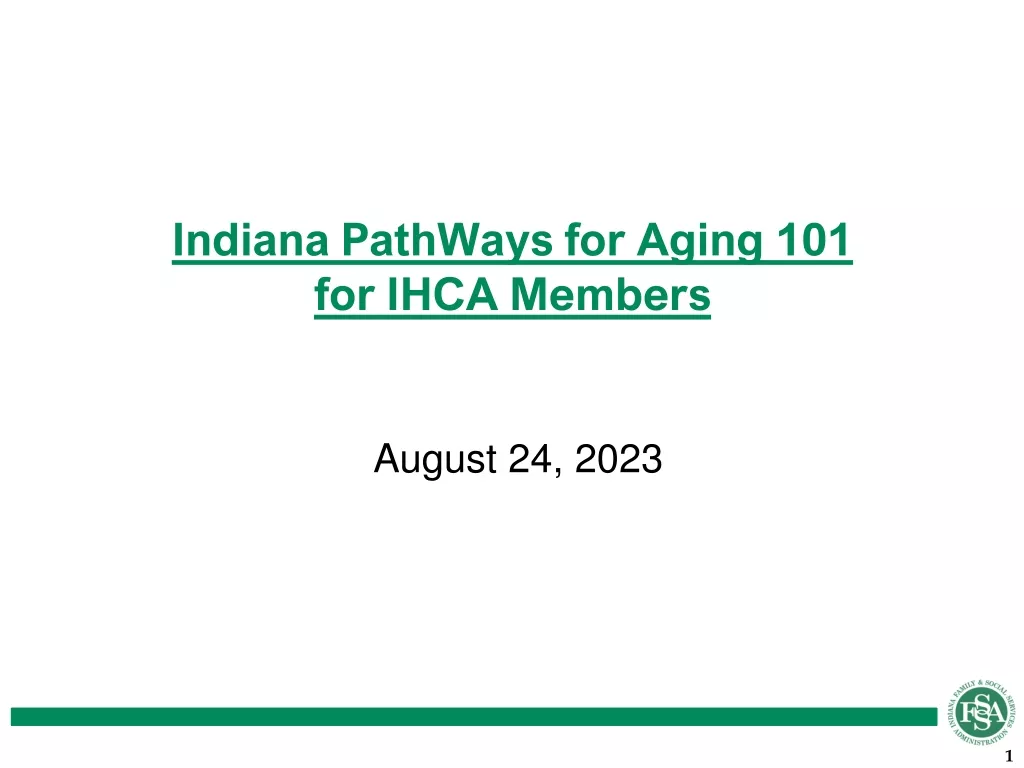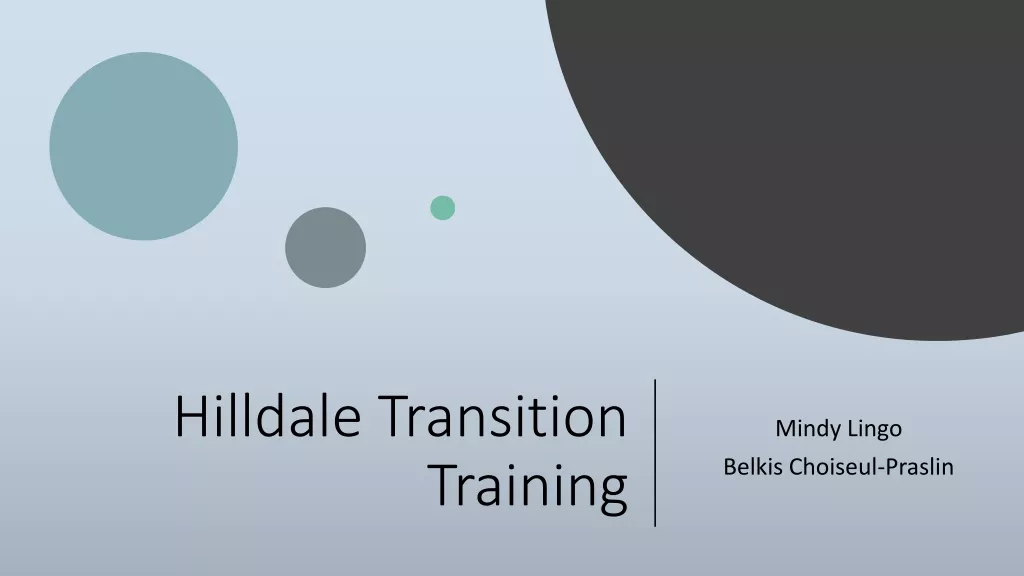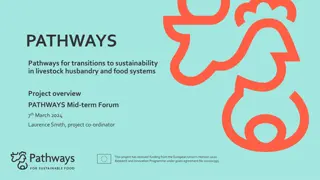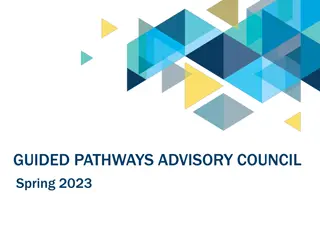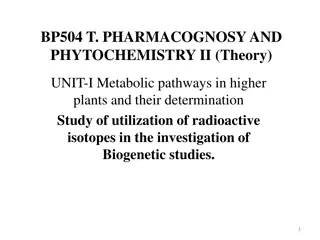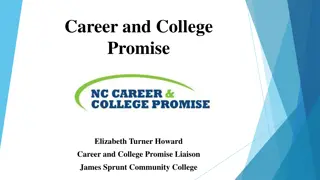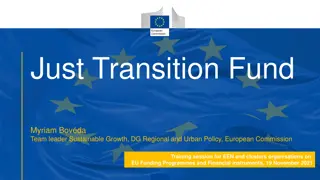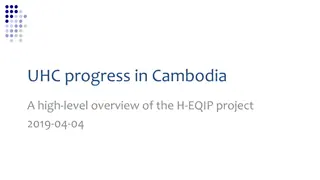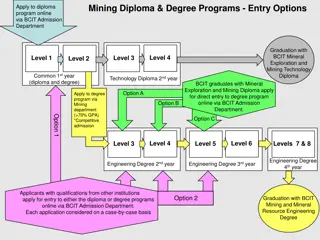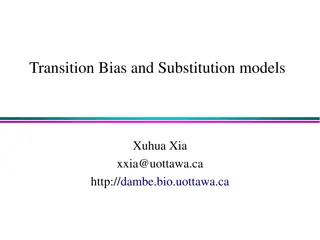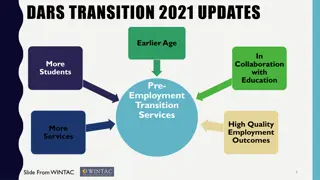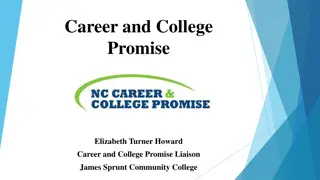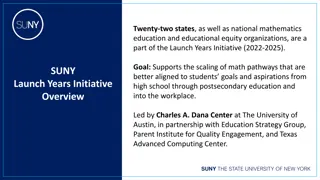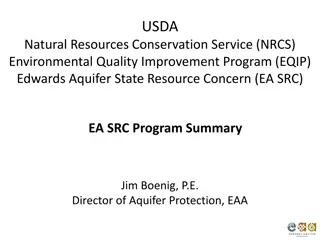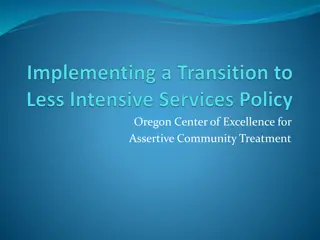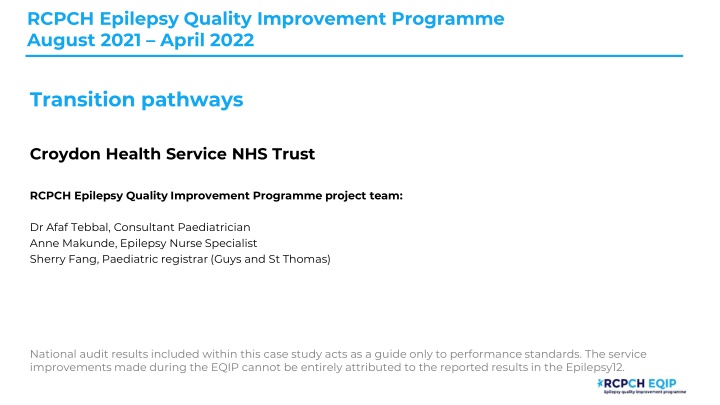
Improving Epilepsy Transition Pathways in Croydon NHS Trust
Engage patients aged 14 and above with their families to enhance transition services in Croydon, addressing the diverse needs of children and young people with epilepsy. Initiatives include patient-driven service changes, workshops, and enhanced resources for a smoother transition into adult services.
Download Presentation

Please find below an Image/Link to download the presentation.
The content on the website is provided AS IS for your information and personal use only. It may not be sold, licensed, or shared on other websites without obtaining consent from the author. If you encounter any issues during the download, it is possible that the publisher has removed the file from their server.
You are allowed to download the files provided on this website for personal or commercial use, subject to the condition that they are used lawfully. All files are the property of their respective owners.
The content on the website is provided AS IS for your information and personal use only. It may not be sold, licensed, or shared on other websites without obtaining consent from the author.
E N D
Presentation Transcript
RCPCH Epilepsy Quality Improvement Programme August 2021 April 2022 Transition pathways Croydon Health Service NHS Trust RCPCH Epilepsy Quality Improvement Programme project team: Dr Afaf Tebbal, Consultant Paediatrician Anne Makunde, Epilepsy Nurse Specialist Sherry Fang, Paediatric registrar (Guys and St Thomas) National audit results included within this case study acts as a guide only to performance standards. The service improvements made during the EQIP cannot be entirely attributed to the reported results in the Epilepsy12.
Transition pathways Croydon Health Service NHS Trust Project aim To engage patients at 14 years and older with their families to determine their level of need for transition and creating an efficient standard based on the needs expressed by children and young people in Croydon. Background The Borough of Croydon has the highest number of children in London (over 260) registered for epilepsy services. The Croydon population is diverse ethnically and culturally, with clear areas of need and social deprivation. In most community child services, the transition service standard is to start transitioning to adult services at the age of 18. However, within Croydon Hospital settings, the transition into adult epilepsy services can start as early as 14-16 years old. This is to ensure that the patients are transitioning to adult services by the age of 17 at the latest. This means that from approximately 14 years of age, patients may be informed that they will be transitioning to adult services soon, which can bring on additional anxieties for the children and young people, families, and carers involved. Area of focus The team participating in the RCPCH Equality Quality Improvement Programme (August 2021 March 2022) used QI methodology and a patient engagement planning plan to engage with teenagers from 14 years of age to incorporate their ideas to co-produce changes in the ways transition services are delivered.
Transition pathways Croydon Health Service NHS Trust Changes Identified all children over 14 years of age from the internal epilepsy database, up to 33 so far. The order of priorities is: 16-year-olds, then 15-year-olds, then 14-year-olds. Identified 8 children who have already been transitioned to adult services or discharged for other reasons why they were removed from the list. The total is now 25 children and young people. Using multiple tests of change, the team tried to test the widely known and nationally used transition programme Ready, Steady, Go with their patients. However, due to the lack of returned questionnaires and poor engagement, the team decided to abandon this process for now. The team mapped the patient journeys to better understand where the process breaks down. Held a dedicated workshop engagement session for the first time, led by drama therapy professionals, to elicit patient and family feedback and ideas for change. Developed and tested information and signposting resources, including patents with learning difficulties. Tested the introduction of nurse-led clinic sessions. Tested with colleagues a range of opportunities for dedicated multidisciplinary discussions focused on transition care.
Transition pathways Croydon Health Service NHS Trust Results questions/comments from submitted Ready, Steady, Go questionnaires Will I ever stop having seizures? Will I be limited in what I can do for a job We don t know anything about the transition process I ve no confidence in teaching son/daughter to be responsible for their own medication My teenager is starting to ask questions I cannot answer!! We need help and advice about being independent I hope this questionnaire will help my daughter going forward I don t understand the difference between children s and adults services
Audit results cohort 3/4 professional input Croydon Health Service NHS Trust NICE guidelines (Quality statement 5) state that children and young people with epilepsy are seen by an epilepsy specialist nurse who they can contact between scheduled reviews. In 2021, 80% of CYP had input from an epilepsy specialist nurse and 71% had input from an epilepsy specialist nurse in 2022. 2019 2020 2021 2022 Percentage of CYP with input from: 2021 SWTPEG 2021 England & Wales 2022 SWTPEG 2022 England & Wales Epilepsy specialist nurse - - 80% 71% 88% 80% 86% 80% Paediatric neurologist - - 0% 21% 19% 25% 19% 20% - - 80% 71% 92% 85% 84% 89% Paediatrician with expertise
Audit results cohort 3/4 professional input Croydon Health Service NHS Trust NICE Quality Standard 140 (Statement 1) Young people who will move from children s to adults services start planning their transition with health and social care practitioners by school year 9 (aged 13 to 14 years), or immediately if they enter children s services after school year 9 . From 2021, the Croydon paediatric epilepsy service has an agreed referral pathways to adult services and continues to have an adult neurologist routinely involved in transition or transfer to adult services. 2018 2019 2020 2021 2022 Which adult professionals are routinely involved in transition or transfer to adult services? 2021 SWTPEG 2021 England & Wales 2022 SWTPEG 2022 England & Wales Yes Yes - No No 62% 61% 63% 66% Adult epilepsy specialist nurse Adult learning difficulty No No - No No 12% 17% 0% 20% Adult neurologist Yes Yes - Yes Yes 88% 86% 88% 88% Youth worker No No - No No 0% 4% 0% 3% Other No No - No No 0% 17% 0% 20%
Audit results cohort 3/4 referral pathways Croydon Health Service NHS Trust In 2022, Croydon paediatric epilepsy service implemented the use of structured resources to support transition, has an outpatient clinical specifically for young people with epilepsies from the age of 16. 2018 2019 2020 2021 2022 2021 SWTPEG 2021 England & Wales 2022 SWTPEG 2022 England & Wales No No - No Yes 75% 63% 88% 66% Dose your paediatric service use structured resources to support transition (e.g. Ready Steady Go)? 2018 2019 2020 2021 2022 2021 SWTPEG 2021 England & Wales 2022 SWTPEG 2022 England & Wales Does your trust have an outpatient clinical specifically for young people with epilepsies? Yes Yes - Yes Yes 62% 40% 63% 45% If yes, from what age does this young people s clinic typically accept young people? 17 16 - 16 16 Mean: 14.8 Median: 16 Mean: 15 Median: 14.5 Mean: 15.2 Median: 16.0 Mean: 14.7 Median: 15.0
Audit results cohort 3/4 transition age Croydon Health Service NHS Trust Graph showing Trust, regional, and national results from 2018-2022 of the mean age at which young people are accepted into the young peoples transition clinic. RJ6 represents Croydon paediatric epilepsy service. Mean age at which young people are accepted into the young people s transition clinic 18 17 16 15 14 13 2018 2019 2020 2021 2022 RJ6 SWTPEG England & Wales
Audit results cohort 3/4 joint clinics Croydon Health Service NHS Trust In 2021 and 2022, Croydon paediatric epilepsy service had an outpatient service for epilepsy with a presence of both adult and paediatric professionals in single joint appointments. Additionally, 100% of CYP transferred to adult services and transitioned through this joint professional process, achieving above regional and national averages. 2018 2019 2020 2021 2022 2021 SWTPEG 2021 England & Wales 60% 2022 SWTPEG 2022 England & Wales 64% Yes No - Yes Yes 88% 88% Does your trust have an outpatient service for epilepsy where there is a presence of both adult and paediatric professionals? If yes, does this comprise: A single joint appointment Yes N/A - Yes Yes 50% 33% 57% 54% Several joint appointments - N/A - - - 0% 4% 0% 6% N/A - - - 25% 17% 29% 30% A mix of joint and individual appointments Other As an estimate, what percentage of young people transferred to adult services are transitioned through this joint professional process? N/A N/A - - - 100% - 100% 12% 90% 6% 72% 14% 90% 10% 75% 75%
Audit results cohort 3/4 joint clinics Croydon Health Service NHS Trust Graph showing Trust, regional, and national results from 2018-2022 on the estimated percentage of young people transitioned. RJ6 represents Croydon paediatric epilepsy service. Estimated percentage of young people transitioned to adult services using a joint professional process 100% 80% 60% 40% 20% 0% 2018 2019 2020 2021 2022 RJ6 SWTPEG England & Wales
Transition pathways Croydon Health Service NHS Trust Challenges Technology: the team struggled with using Google Forms to send patients their engagement questionnaire because it was inaccessible for patients. Questionnaires: the team found that engaging with patients via a questionnaire method did not offer many returns or provide the required level of feedback to understand their patients needs. The team experienced a lack of engagement from some families when trying to obtain completed Ready, Steady, Go questionnaires; however, the team learned engagement techniques during the EQIP to help plan for their engagement day. Time: holding a caseload, fitting in meetings, etc., takes time, resulting in reduced capacity within the team. Admin time: the team struggled to find admin time within their day-to-day tasks and, at times, progress their project. Staff absence: the team experienced team member absences during the project due to illness.
Transition pathways Croydon Health Service NHS Trust Outcomes Using multiple tests of change, they used the widely known and nationally used transition programme Ready, Steady, Go with their patients. However, due to the lack of returned questionnaires and poor engagement, the team decided to abandon this process for now. The team mapped their patient journey referral pathway to better understand where the process breaks down. Held a dedicated workshop engagement session for the first time, led by drama therapy professionals, to elicit patient and family feedback and ideas for change. Developed and tested information and signposting resources, including patents with learning difficulties. Tested the introduction of nurse-led clinic sessions. Tested with colleagues a range of opportunities for dedicated multidisciplinary discussions focused on transition care. National audit results showed in 2021 and 2022 that the Croydon paediatric epilepsy service had an outpatient service for epilepsy with a presence of both adult and paediatric professionals in single joint appointments. Additionally, 100% of CYP transferred to adult services and transitioned through this joint professional process, achieving above regional and national averages.
Transition pathways Croydon Health Service NHS Trust Lessons learnt Systematic analysis of current system failures is key, followed by a structured approach using quality improvement methods to change and ensure changes are embedded. Questionnaires are not the best way to engage with or harvest information, and they offer very little return on their efforts. The team was made aware they needed to change the way they shared information with patients and their families. A one-size-fits-all approach is not sufficient to meet the needs of CYP, particularly in areas with large variations in socio-demographics, including parental education level. Terminology is not always compatible. Linking and learning with other chronic-condition services was very helpful. Visual presentation of team project intervention Team poster Team video presentation
https://eqip.rcpch.ac.uk eqip@rcpch.ac.uk @RCPCHEQIP

